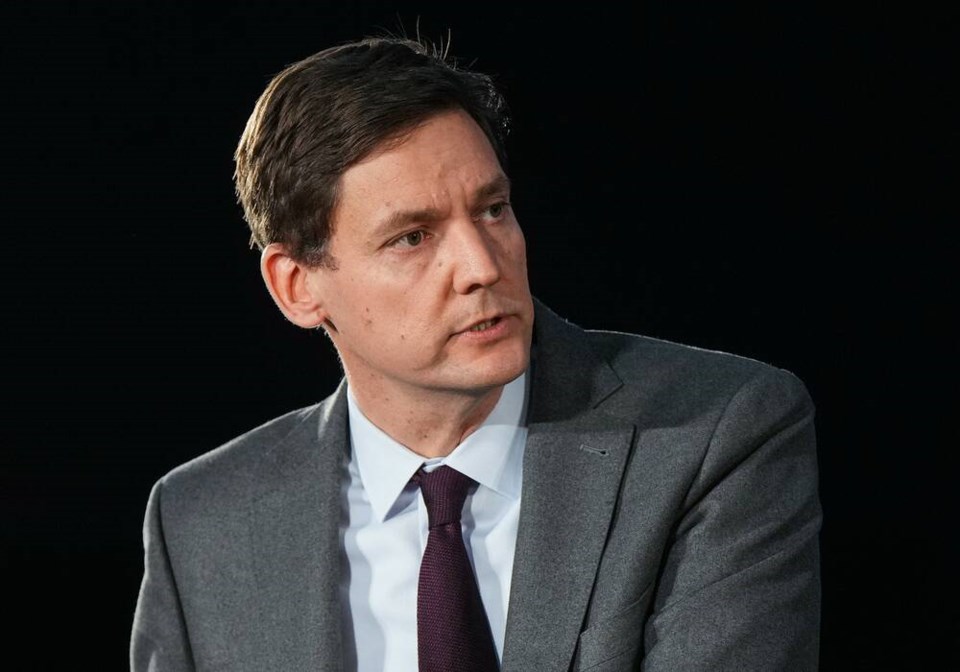The province has launched a Safer Communities Action Plan that aims to keep repeat offenders off the streets and strengthen communities.
Premier David Eby made the announcement Sunday, just days after being sworn into office, saying that public safety is a key priority.
That means making things safe for those struggling with mental health and addiction, as well as families, seniors and all other groups, he said.
The success of the plan hinges on co-ordinated action involving the justice system, non-profit organizations, cities, the provincial government and Indigenous people, Eby said.
The plan recognizes that there is “zero tolerance” for violence in B.C. and concentrates on helping people overcome the process of being in and out of jail, he said.
Eby said that one of the first steps is setting up “co-ordinated response teams” to address the issue of violent offenders.
“These teams are made up of police, dedicated prosecutors, probation officers,” he said. “Their mission is to prevent violent crime before it happens, and when it does happen to make sure that violent offenders wait for trial in custody and not in our community.”
The plan also calls for increasing response to those in mental-health crisis with initiatives like 12 new “peer-assisted” care teams, some of them Indigenous-led.
“These peer-assisted teams intervene when people are in mental-health crisis in our streets, freeing up police to focus on crime instead of social services,” Eby said.
Victoria Police Chief Del Manak backed the plan.
“Our police officers are dealing with the impacts that mental health and addictions have on our communities on a daily basis, including challenges with violent, repeat offenders,” he said. “I support initiatives that enhance social services, connect people to the services they need and prioritize public safety.
“I look forward to working with government on our shared vision toward community safety and well-being.”
Eby said Attorney General Murray Rankin will instruct prosecutors to implement “a clear and understandable” bail policy for repeat violent offenders within existing federal guidelines.
“We’re also providing training and resources for prosecutors to work with police to make sure that the materials that are put in front of the court in the case of a violent offence are complete, so the court is making a decision on all of the facts and can protect the public,” he said.
The plan will also deal with the high numbers of Indigenous people in the justice system, Eby said. Action includes opening 10 new Indigenous justice centres across the province to go with three that are already in operation.
“They will be operated by the B.C. First Nations Justice Council and offer free, culturally appropriate services to help people address the root causes of why they’re in contact with the justice system, and break the cycle.”
B.C. First Nations Justice Council director Kory Wilson called the new centres a “cornerstone” of the provincial strategy.
“Lifting up Indigenous people to lead this work for ourselves is the right approach,” Wilson said, and it has the potential “to reverse decades of appalling statistics that speak to the growing over-representation of our people in the justice and child welfare systems.”
Eby said people struggling with addictions and mental health need treatment to get better, and the plan calls for a new model of care for them “that moves seamlessly from crisis response in our emergency rooms and our streets to detox, to treatment and supportive housing.”
Nanaimo Mayor Leonard Krog praised the plan’s scope.
“We’ve all seen the impacts of criminal behaviour in the downtown,” he said. “That’s why I’m pleased to see the province’s co-ordinated approach of both enforcement and strengthened services, which will help break the cycle of repeat offending, help people to receive the supports they need, and help people feel safe and secure in our community.”
Eby said legislation to target “unexplained wealth and organized crime” will be introduced in the spring of 2023.
“Unexplained wealth orders are a tool to go at why organized crime exists — to make money,” he said. “It will be seizing the assets and going after the proceeds that attract young people to organized crime and gang life.”
That includes things like luxury homes and flashy cars, Eby side.



